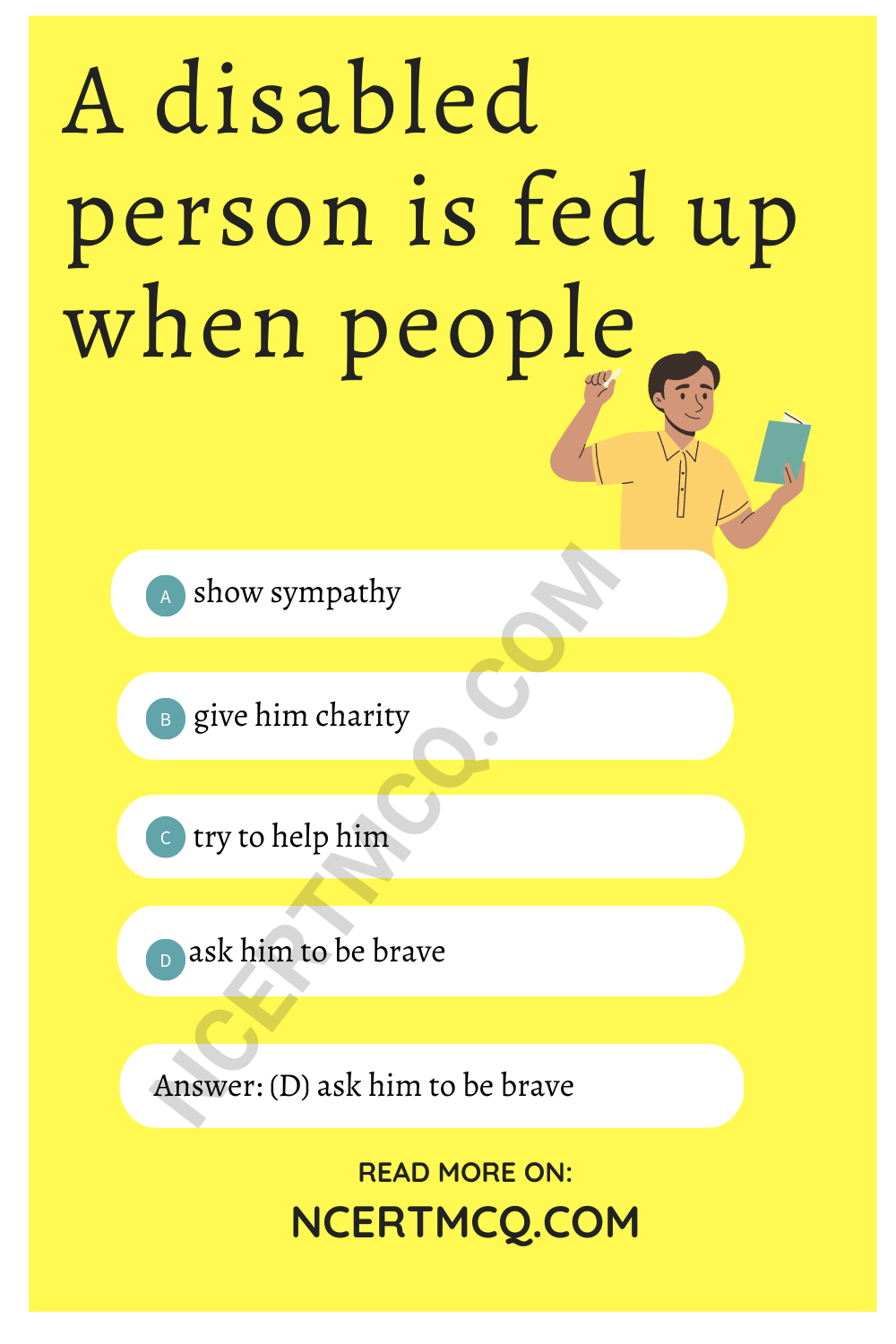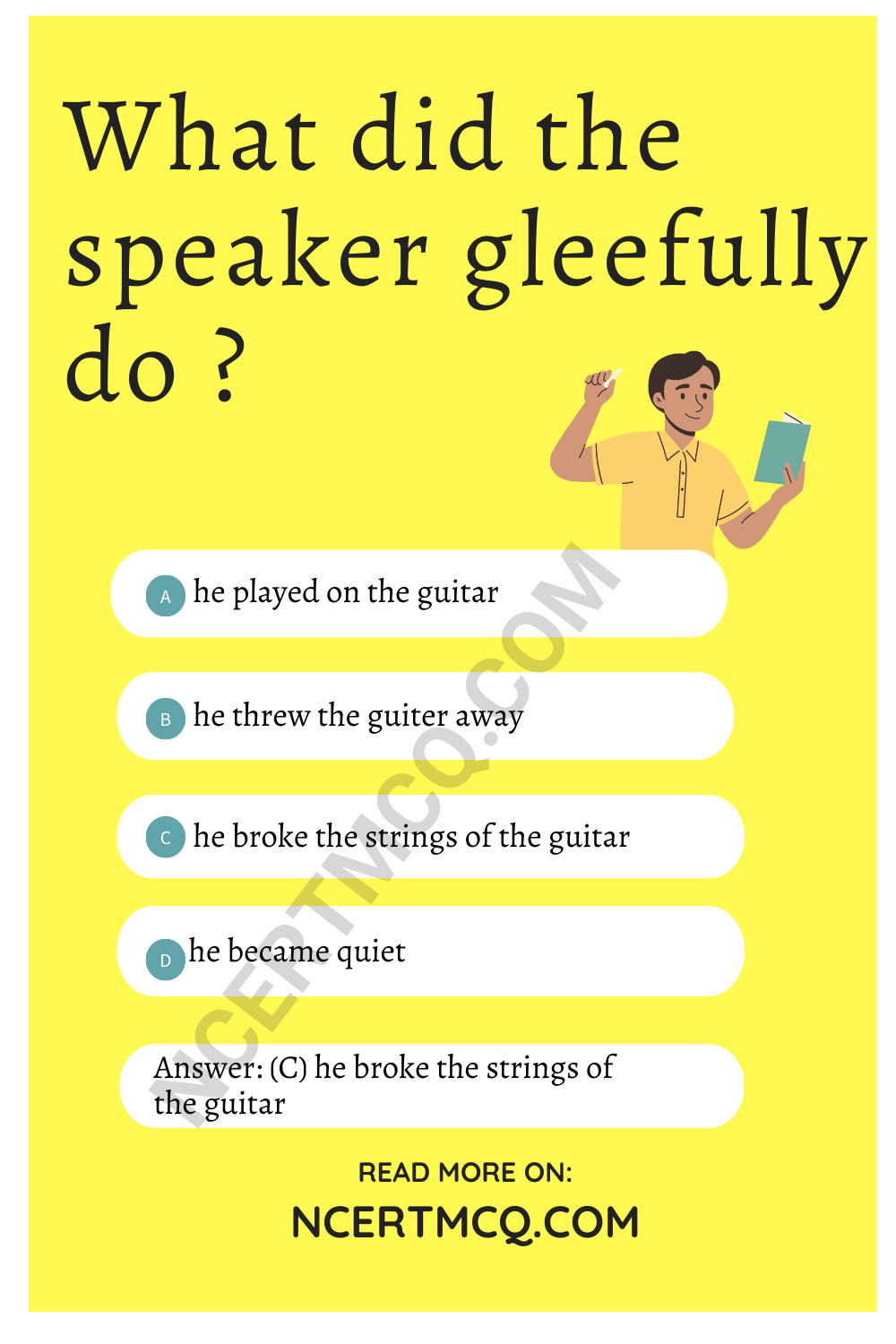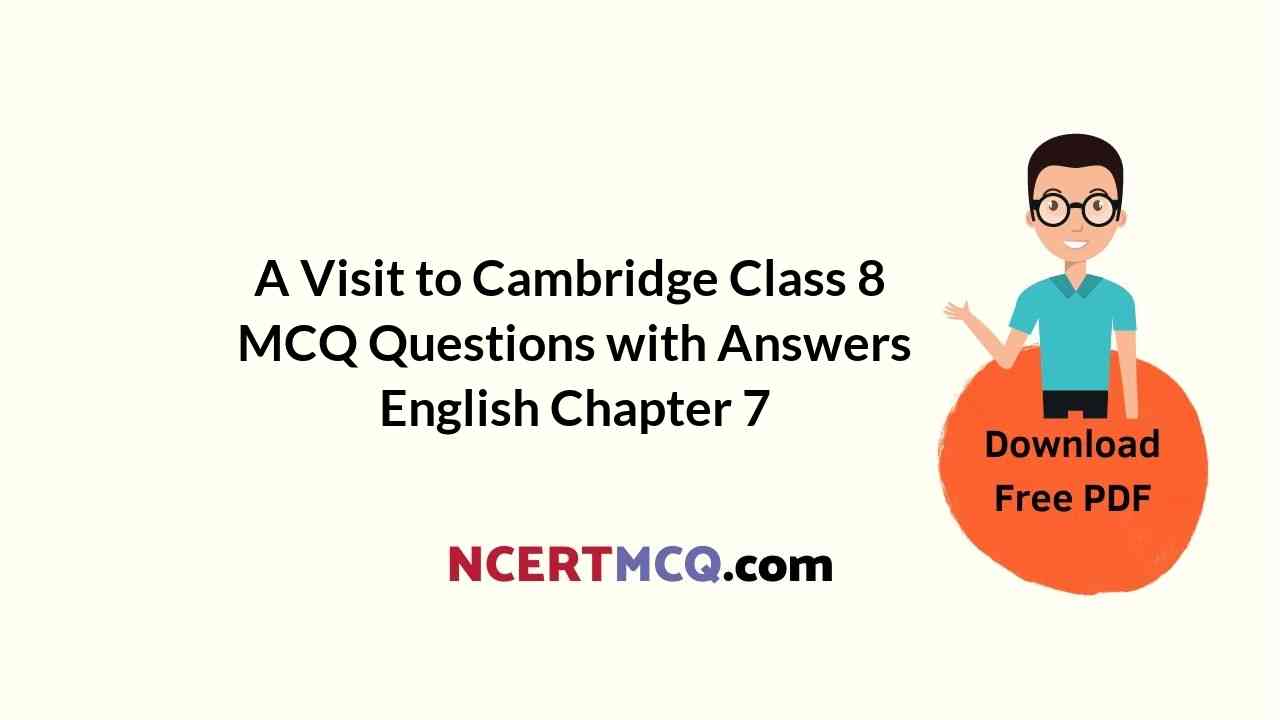Check the below Online Education NCERT MCQ Questions for Class 8 English Honeydew Chapter 7 A Visit to Cambridge with Answers Pdf free download. MCQ Questions for Class 8 English with Answers were prepared based on the latest exam pattern. We have provided A Visit to Cambridge Class 8 English MCQs Questions with Answers to help students understand the concept very well.
Students can also visit the most accurate and elaborate NCERT Solutions for Class 8 English Honeydew Chapter 7 A Visit to Cambridge. Every question in the textbook has been answered here.
MCQ Questions for Class 8 English Honeydew Chapter 7 A Visit to Cambridge with Answers
A Visit To Cambridge MCQ Class 8 Question 1.
The author says “Cambridge was my metaphor for England”. It means that for him
(a) Cambridge was as important as England
(b) England was more important than Cambridge
(c) Cambridge was the only important thing in England
(d) Cambridge and England were the same.
Answer
Answer: (c) Cambridge was the only important thing in England
Class 8 English Chapter 7 MCQ Question 2.
Firdaus Kanga is a
(a) scientist
(b) journalist
(c) friend of Hawking
(d) politician
Answer
Answer: (b) journalist
A Visit To Cambridge Class 8 MCQ Question 3.
Hawking was a
(a) scientist
(b) journalist
(c) friend of Kanga
(d) politician
Answer
Answer: (a) scientist
Visit To Cambridge MCQ Class 8 Question 4.
A disabled person is fed up when people
(a) show sympathy
(b) give him charity
(c) try to help him
(d) ask him to be brave
Answer
Answer: (d) ask him to be brave

MCQ Of A Visit To Cambridge Class 8 Question 5.
Kanga felt guilty everytime he spoke to Hawking because
(a) Hawking had to work hard to respond
(b) he was wasting his own time
(c) he was wasting Hawking’s time
(d) Hawking had asked him to keep quiet
Answer
Answer: (a) Hawking had to work hard to respond
A Visit To Cambridge MCQ Questions Class 8 Question 6.
Hawking felt amused when people
(a) sympathized with him
(b) Patronised him
(c) disturbed him
(d) loved him
Answer
Answer: (b) Patronised him
A Visit To Cambridge MCQs Class 8 Question 7.
What did the writer wish to do when he was leaving Hawking’s residence?
(a) The writer wanted $o kiss Hawking and cry.
(b) The writer wanted to hug Hawking.
(c) The writer wanted to run away.
(d) The writer wanted to say kind words to Hawking.
Answer
Answer: (d) The writer wanted to say kind words to Hawking.
Question 8.
How long did the meeting last?
(a) Less than an hour
(b) More than an hour
(c) Two hours
(d) For hours
Answer
Answer: (a) Less than an hour
Question 9.
What was the scientist deadly against?
(a) The Disabled Olympics
(b) The Spanish Guitar
(c) Swimming
(d) Writing
Answer
Answer: (a) The Disabled Olympics
Question 10.
The advice given by Hawking to other disabled people was
(a) To concentrate on what they were good at
(b) To master the art of writing
(c) To learn to smile and laugh at their sufferings
(d) To not meet any people
Answer
Answer: (a) To concentrate on what they were good at
Question 11.
Where had the writer come from?
(a) India
(b) China
(c) Japan
(d) Sri Lanka
Answer
Answer: (a) India
Question 12.
Why did he wish to meet Hawking?
(a) Hawking was a living genius.
(b) Hawking was too depressed.
(c) Hawking had called him.
(d) Hawking was on his death bed.
Answer
Answer: (a) Hawking was a living genius.
Question 13.
How long did the writer expect to be allowed to meet the scientist?
(a) Ten minutes
(b) Half an hour
(c) One hour
(d) Two hours
Answer
Answer: (b) Half an hour
Question 14.
The writer was fed up with certain people because they are
(a) too sympathetic
(b) too persuasive
(c) too discouraging
(d) too interfering
Answer
Answer: (b) too persuasive
Read the following extracts and answer the questions that follow choosing the correct options among the given ones :
(1)
The only thing that makes you stronger is seeing somebody like you, achieving something huge. Then you know how much is possible and you reach out further than you ever thought you could.
Question 1.
The speaker in these lines is talking of
(a) himself
(b) Stephen Hawking
(c) Hawking’s assistant
(d) disabled people.
Answer
Answer: (d) disabled people.
Question 2.
One feels inspired and confident when one finds someone in the same or worse circumstances
(a) needing his help
(b) living a decent life
(c) doing something great
(d) earning much money.
Answer
Answer: (c) doing something great
Question 3.
The phrase ‘reach out’ means
(a) Walk
(b) move your hand
(c) go out
(d) try to get
Answer
Answer: (d) try to get
(2)
“I know what you mean.” I remembered the years I’d spent trying to play a Spanish guitar considerably larger than I was ; and how gleefully I had unstringed it one night.
Question 1.
The speaker of the above lines is
(a) Firdaus Kanga
(b) Hawking
(c) Hawking’s assistant
(d) Newton.
Answer
Answer: (a) Firdaus Kanga
Question 2.
Wou’ in the passage refers to
(a) Firdaus Kanga
(b) Hawking
(c) Hawking’s assistant
(d) Newton
Answer
Answer: (b) Hawking
Question 3.
What did the speaker gleefully do ?
(a) he played on the guitar
(b) he threw the guiter away
(c) he broke the strings of the guitar
(d) he became quiet
Answer
Answer: (c) he broke the strings of the guitar

(3)
Every time I shifted in my chair or turned my wrist to watch the time—I wanted to make every one of our thirty minutes count—I felt a huge relief and exhilaration in the possibilities of my body. How little it mattered then that I would never walk, or even stand.
Question 1.
Why was the author looking at his watch so often ?
Answer
Answer: The author had been granted only thirty minutes to talk to Hawking. He wanted to make full use of each minute.
Question 2.
Why did he feel relief and exhilaration ?
Answer
Answer: The author was a disabled person. However, there was before him a totally invalid person— Hawking. Yet this invalid had reached great heights. So the author was pleased to see that his limbs were much better than that of Hawking. He thought if Hawking could do so much with his body, he (the author) could do much more.
Question 3.
Explain the meaning of the last sentence.
Answer
Answer: The thought that he could not walk or stand did not cause any sorrow now. After all people with weaker bodies have done much useful work in life. He had realised it after meeting Hawking.
We hope the given NCERT MCQ Questions for Class 8 English Honeydew Chapter 7 A Visit to Cambridge with Answers Pdf free download will help you. If you have any queries regarding CBSE Class 8 English A Visit to Cambridge MCQs Multiple Choice Questions with Answers, drop a comment below and we will get back to you soon.
